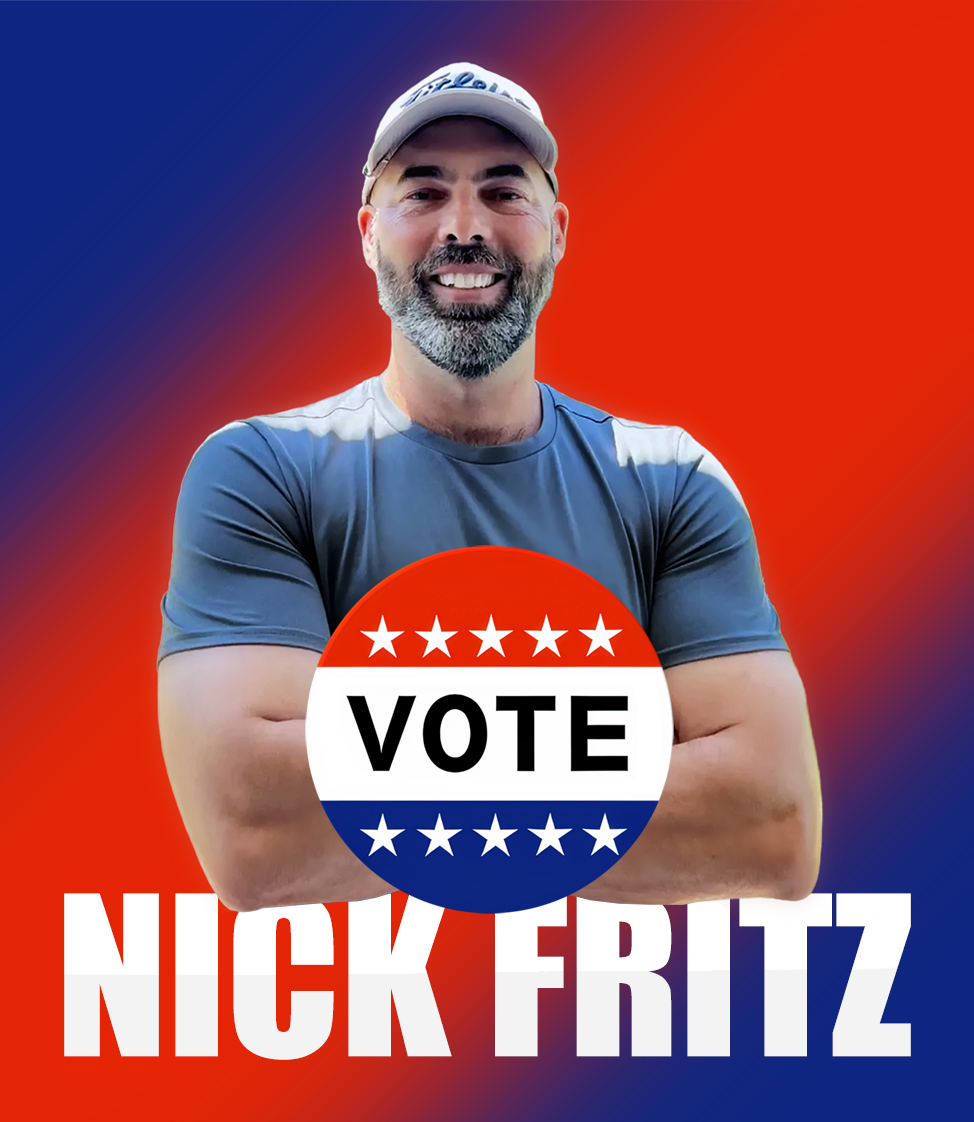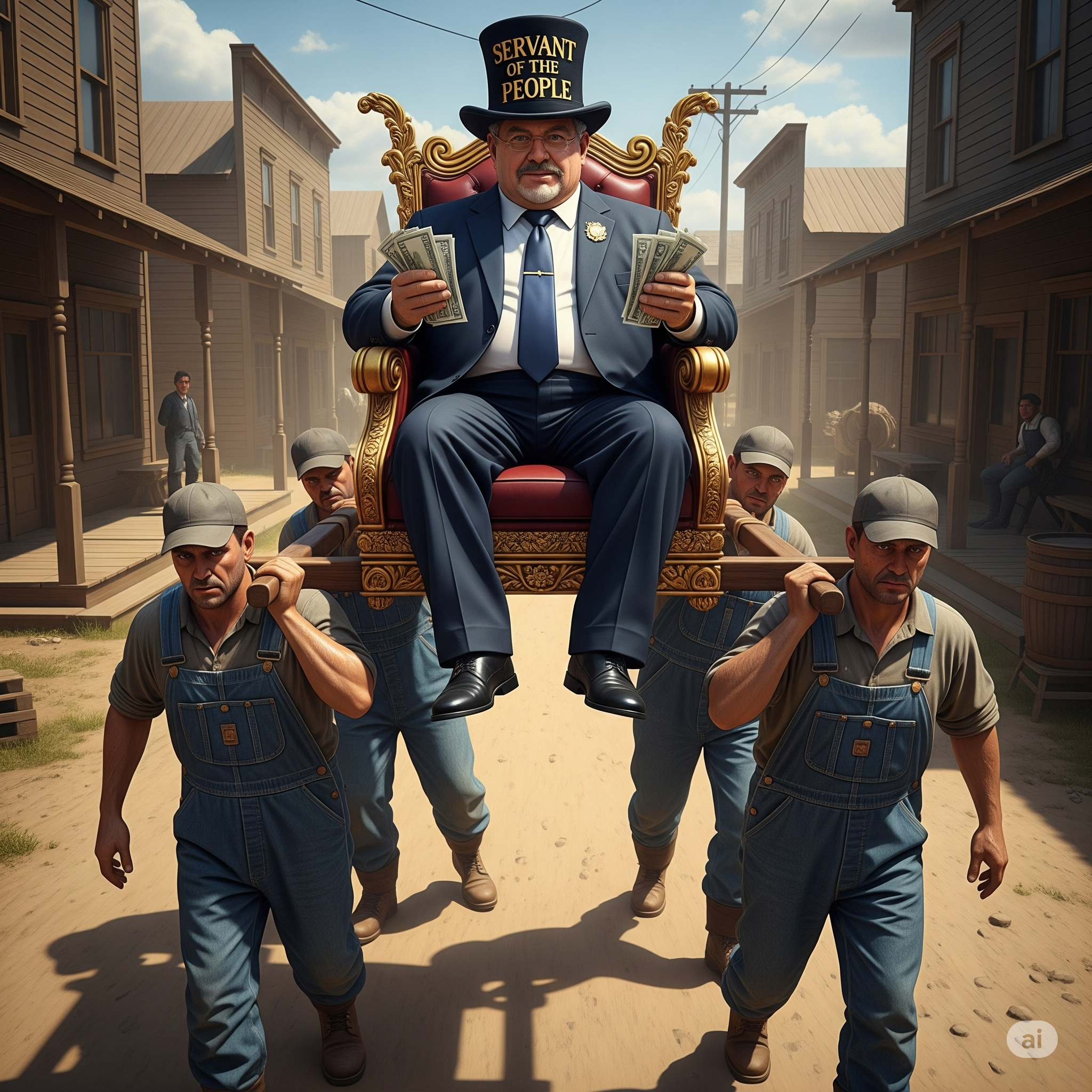Civics 101: Beware of Bureaucracy | Elect Nick Fritz
Bureaucracy is the enemy of conservatism

Civics 101: Beware of Bureaucracy |
|
Civics 101: Beware of the Bureaucracy

In our republican society there are three major social divisions that we don’t often talk about. There are the people, the elected government, and the unelected government. From a citizen’s perspective, we often focus on the elected government. They were put forth to represent the will of the citizens. Unfortunately, it is not the elected officials who actually run the government. This is the great disconnect for most of us. It is the unelected government, the bureaucracy, that runs things. The unelected government makes the rules, enforces the rules, and is in charge regardless of who wins the elections.
It is not too difficult to understand how this system came about or why it is so hard to alter it. Civilian society is composed of people who spend their time in leisure or devising ways to make their neighbors’ lives happier and easier. This isn’t due to altruism, it is due to a natural impulse to improve our own lot. We actively try to make a better widget, provide greater service, make things faster, and cheaper in an effort to gain the business of our neighbors. Free societies produce entrepreneurs, capitalists, and a whole lot of wealth. The rising tide lifts all boats. As business booms, wages boom too.
Not every transaction goes according to plan, however, and the larger the community, the greater the likelihood of conflict. Every society, no matter how small and how free, eventually forms a governing council to settle disputes, keep track of property records and contracts, and generally conduct community business. This is the foundation of government.
In a democratic society, the citizens are too busy working and moving up the economic ladder to worry about government, so they gather together and vote a few unlucky souls to be the ones to conduct the business of government for the community. In the earliest days, these elected officials didn’t want the job. It was an extra hassle on top of their real-life duties. The elected officials would preside over disputes and they would determine how much money was needed to handle community business. They would inform the citizens of the financial burdens and the citizens would all vote to contribute their taxes. Taxation was used explicitly for communal business. Like a modern home-owner’s association, the dues were kept as low as possible.
As communities grew, the burden of carrying on the affairs of government grew as well. The elected officials didn’t have the time nor the expertise to handle the growing complexities of a larger society. They began to hire professionals to do what they were unqualified to do. The elected officials hired town managers to handle negotiations and finances. The town manager then hired surveyors, accountants, lawyers, clerks, etc. As cities grew, so too did the size of their budgets. Citizens, busy with their lives, paid less and less attention to the affairs of government, and the citizens who were elected to govern the city increasingly became removed from the day-to-day affairs of government as well.
In time, the hired professionals did everything and the elected officials were only the veneer, the illusion of the voice of the people. They came and went as fast as election cycles, and they were totally unqualified to evaluate the decisions of the bureaucrats, let alone make the decisions. The complexities of running a government were handled by the many varied professionals. Most of these are well intentioned, and after all, they are hired to do a job. As the budgets of towns swelled, the elected officials, city managers, and various department heads all wanted to do more. They found reasons and excuses to have an active and busy government. With each new endeavor, there was a new reason to employ more friends, family, and associates. The number of activities and people on the governing payrolls soared over the years.
More than that, the citizens were always fairly aloof from the goings on of government. Only a tiny fraction of them were ever elected to office, and these few rarely saw or looked into the vast, vast workings of the unelected governing divisions. It was all handled outside of the view, supervision, or expertise of the citizens and the elected officials. But, because they had an annual budget, the one thing that all parties involved were sure to do was to vote for pay increases. They weren’t being shady or illegal. It is not nefarious. They voted for pay increases in plain sight of everyone… but no one was looking. As the years ticked on and the tax-paying citizens remained busy and uninterested the salaries of all elected officials and unelected city managers ticked up in lock step.
That is how we ended up where we are today. The Federal Department of Education employs 4200 people and has a budget of $200 billion. Of that $200 billion, $100 billion goes to the administration costs. Not a single one of the 4200 federal employees teach. They all administer. But that’s only the federal bureaucrats. The state bureaucracy must take their cut as well. Of the $1.7 trillion dollars that the citizens of the US are taxed for education, $1.2 trillion goes to the bureaucracy.
In California, there is a 'Campus Police Officer' (that's his title) who has an annual salary of $10,000,000. In North Carolina, there are ten employees in the school system whose salary is over $1,500,000. The average state retiree's pension is over $150,000. These folks are literally paid not to work, and they represent the highest paid group of state employees.
I’m using the Department of Education as an example, but the problem is endemic through the system. It’s the same in every department of government. It is what happens unless we actively work to prevent it.
Our town is neither better nor worse. The city of Washington has led the state for pay increases for its civil servants for three of the last five years. Each citizen pays over $10,000 in taxes to the City of Washington in addition to all taxes paid to the county, state, and federal government. We scratch our heads wondering where all the money is going and we ask the elected officials. They scratch their heads, too.
It reminds me of two books by the same title written in Russia in the late 19th Century, one by Chernyshevsky and the other by Lennin, when they were suffering under the weight of their own bloated government. The title was What Is To Be done?
We don't need a Russian Revolution, but we do need the elected officials to do the jobs they were elected to do and run the government for the people. We need the elected officials to take back the responsibilities from the bureaucracy. They are not elected to use our tax money to pay someone https://egregora.moar.ro/ else to do the job.
And that is Civics 101: beware of the bureaucracy!
| What does it mean to be a Conservative? | Uncategorized |
|
The recent controversy around 15th Street has encouraged me to run for the Washington City Council. The NC Department of Transportation (NCDOT) owns several roads in town, and one of them is 15th Street.
Published: Monday, July 7th, 2025 @ 6:24 pm
By: Nick Fritz
|
|
Conservatism in the modern era
Published: Monday, July 7th, 2025 @ 6:24 pm
By: Nick Fritz
|
|
Bureaucracy is the enemy of conservatism
Published: Monday, July 7th, 2025 @ 3:18 pm
By: Nick Fritz
|